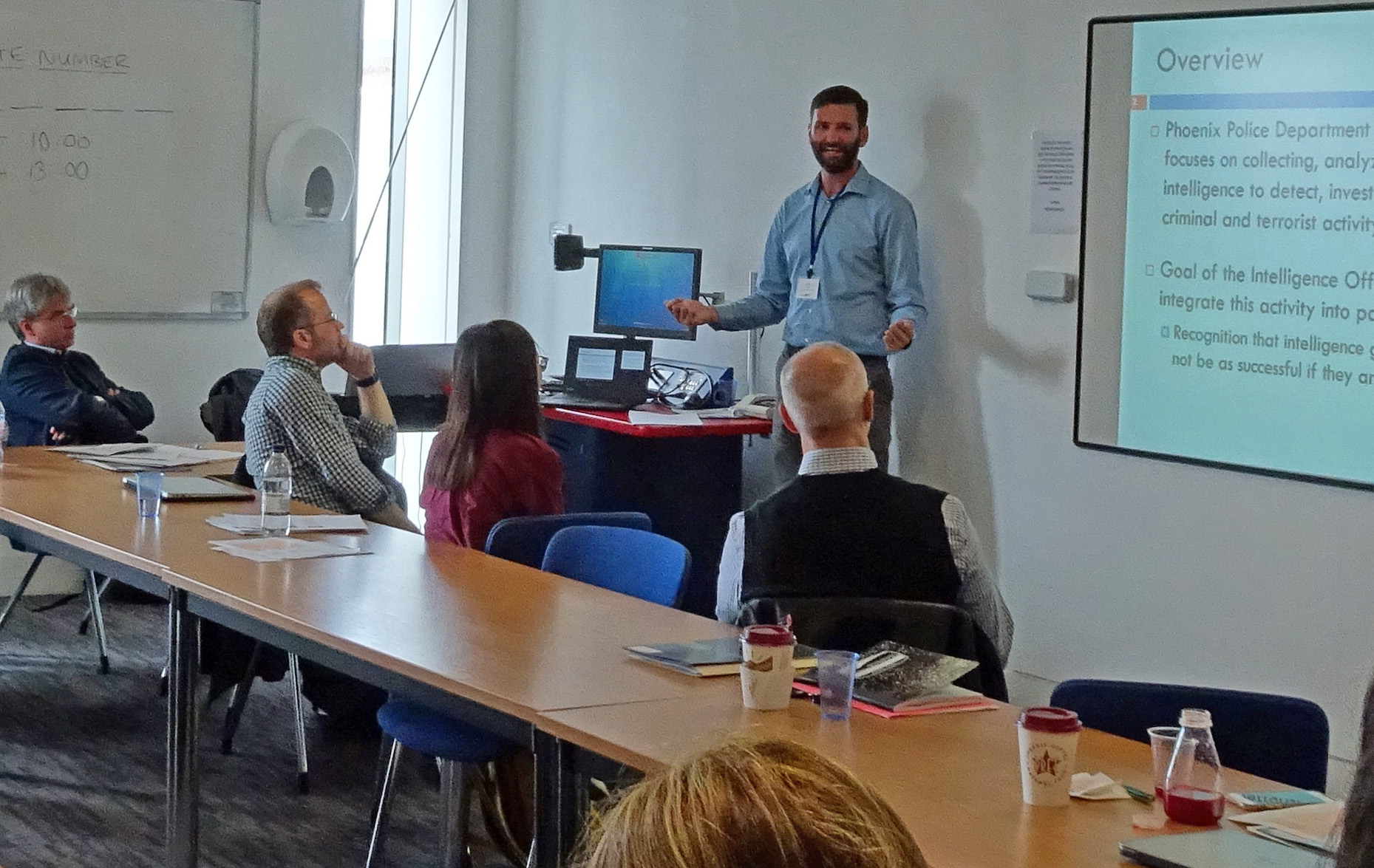
Cody Telep to receive prestigious criminology award
When Cody Telep isn’t teaching class, you’ll find him in the field working with police officers to determine what works to reduce crime or sharing what he's learned with other police agencies and criminologists. An assistant professor in the School of Criminology and Criminal Justice at Arizona State University, Telep will receive the Outstanding Young Experimental Criminologist Award from the Division of Experimental Criminology at at the American Society of Criminology annual meeting in Atlanta in November.
“This prestigious award recognizes the important and policy relevant work that professor Telep is doing with law enforcement agencies throughout the United States,” said Cassia Spohn, director of the ASU School of Criminology and Criminal Justice. “It also recognizes the fact that Cody and his coauthors have been able to convince law enforcement agencies to evaluate their policies and practices using experimental methods that are considered the ‘gold standard’ in research design.”
Telep is currently studying whether procedural justice--police treating those they encounter with respect and kindness--will lead to better outcomes in high crime areas. In Tucson, he worked with two groups of police officers. One group was trained in procedural justice and asked to use it in the field. The other group wasn’t. The $1.8 million study is funded by the Arnold Foundation and will expand to Cambridge, Massachusetts and Houston, Texas.
“The real benefit of experiments in the context of criminology and policing, which I'm especially interested in, is really giving policymakers practitioners good answers about the impact of programs,” said Telep.
Experimental research can also be expensive because it requires significant hours spent setting up and conducting fieldwork. For the Arnold Foundation study, Telep’s research team is interviewing residents in a 40 block area and individuals who encountered police taking part in the study.
For young professors like Telep, conducting experimental research can also backfire because it can prevent them from meeting their school’s teaching, community involvement and research expectations required for tenure. That’s one reason many professors opt to utilize large pre-collected databases.
”It's sort of risky, especially for untenured people,” Telep said. “So, in some sense like I don't want to say I'm a risk taker in that regard but I've been involved in some projects that you know they're time consuming and some of them will lead to lots of publications down the road.”
Telep became interested in policing research after going on a police ride along for an undergraduate sociology class at Emory University. He finds his research exciting and enjoyable. And he’s humbled that others have recognized his work.
“The award is really incredible because there's a prestigious group of people that have previously won this award and that are involved in the selection of this,” said Telep. “I appreciate all the great guidance and mentorship I've had to get to this point and be able to be involved in some current experiments."